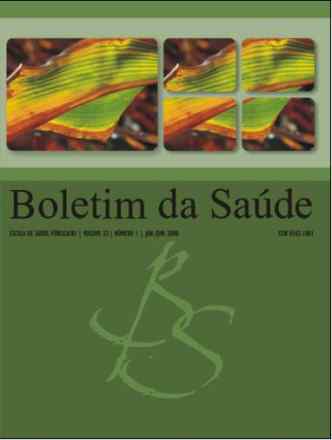CAPACITAÇÃO DE AGENTES INDÍGENAS DE SAÚDE COMO FORMA DE PROMOÇÃO DA SAÚDE NA RESERVA INDÍGENA GUARITA, REDENTORA - RS
Boletim Da Saúde
CAPACITAÇÃO DE AGENTES INDÍGENAS DE SAÚDE COMO FORMA DE PROMOÇÃO DA SAÚDE NA RESERVA INDÍGENA GUARITA, REDENTORA - RS
Autor Correspondente: Ana Maria Pedrolo | [email protected]
Palavras-chave: agente indÃgena de saúde, saúde indÃgena, atenção primária, serviços de saúde do indÃgena
Resumos Cadastrados
Resumo Português:
Os Agentes IndÃgenas de Saúde (AIS) são indÃgenas alfabetizados
que vivem na aldeia e estão em contato direto com
as dificuldades e os problemas locais. Um grupo de Residentes
do Centro de Saúde-Escola Murialdo (CSEM) composto
por duas enfermeiras e duas médicas foi até a Reserva
Guarita, no municÃpio de Redentora - RS, para atividades
de promoção de saúde durante duas semanas. Envolvidas
pelas dificuldades de atuação, de vÃnculo com a comunidade
e de estabelecimento de atividades educacionais e preventivas,
foi proposto um programa diferenciado de atuação
para uma contribuição mais efetiva na realidade local. Os
AIS foram reunidos em uma escola durante dois turnos,
onde foi discutida a importância do trabalho dos agentes,
seu papel na aldeia e suas formas de abordagem de prioridades
na comunidade, além de esclarecimento de dúvidas
sobre saúde e orientação da população. Os participantes
demonstraram conhecimento ao definir suas atribuições e
responsabilidades na promoção e vigilância em saúde na
aldeia. Apresentaram grandes dificuldades de atuação e
integração com a equipe de saúde local e com os gestores.
Esclareceram dúvidas sobre os programas de saúde
prioritários e problematizaram situações de risco e demandas
trazidas pela população. O AIS é o elo principal do
saber cientÃfico e do saber popular. Para a execução adequada
desse trabalho, são necessárias capacitações periódicas
e sistemas de educação permanente, além de maior
integração desses profissionais nas decisões e planejamento
das unidades de saúde.
Resumo Inglês:
The Indigenous Health Agents (IHA) are literate Indians
who live in the village and are in direct contact with the
local problems and difficulties. A group of residents of the
Center for Health-School Murialdo consisting of two
nurses and two doctors went to the Guarita village in the
municipality of Redentora - RS, for activities of health
promotion for two weeks. While they were involved with
the difficulties with their activity and with the links with
the community, and with the establishment of preventive
and educational activities, an differentiated action program
was proposed toward a more effective contribution with
local reality. The AIS were gathered in a school for two shifts,
where the importance of the agents' work was discussed, as
well as their role in the village and ways of addressing the
priorities in the community, in addition to clarification on
questions about health and orientation of the population. The
participants demonstrated knowledge while defining their
duties and responsibilities in promoting health and surveillance
in the village. They demonstrated great difficulties in action
and integration with the local health team and with the
managers. They clarified questions about prioritizing health
programs and questioned about risk situations and demands
of the population. The AIS is the main link between scientific
knowledge and popular knowledge. Periodical training and
continued educational programs are necessary for the
appropriate implementation of this work, in addition to greater
integration of these professionals in decision making and
planning regarding the health units.

